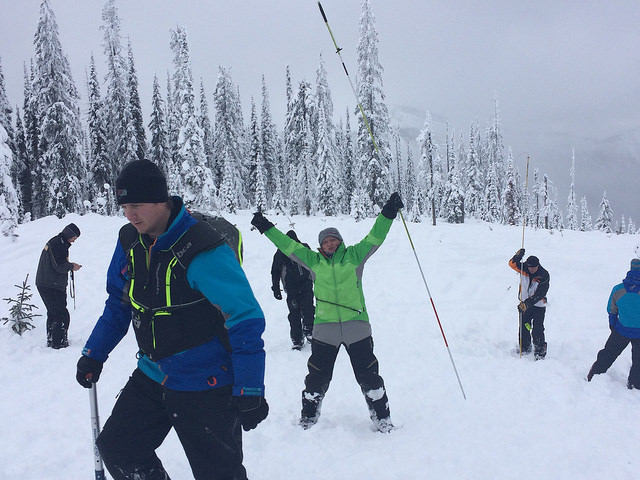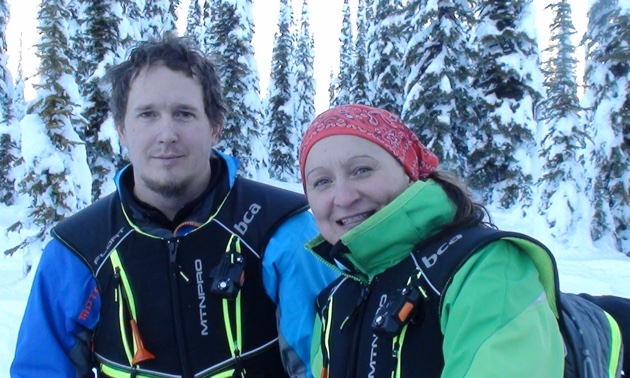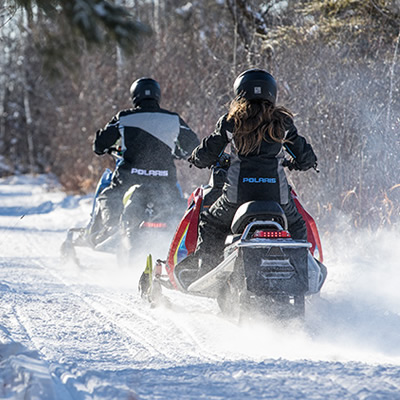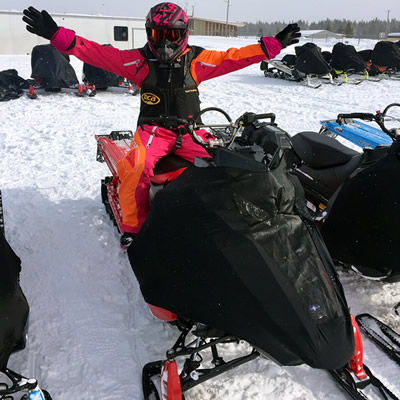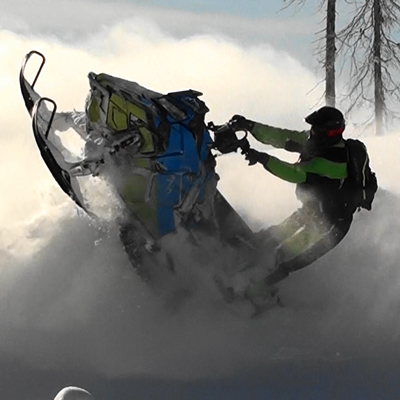In such times as now, where political correctness seems to be working overtime, I quite often see one discrimination which presents itself quite often in our society. Is it race? No. Is it culture? No. It is the prejudice we, as snowmobilers, see each time there is the need for a scapegoat or blame to be laid in an unfortunate situation. In the face of tragedy or controversy it seems to be quite socially acceptable to bash, blame and ridicule the sport of snowmobiling, creating somewhat of a socially acceptable double standard.
Some examples of the comments following the death of five snowmobilers in a recent newspaper publication:
"Highmarking" is a deadly "sport." It happens every year. It needs to be made illegal.”
“When are they going to ban this dangerous sport. 5 deaths is too much.”
“It's sad for the loss of life but it's also sad how these machines destroy the pristine majesty of the mountains.”
"Devastated" ?? Hardly. Any number of online discussions have produced an incredible number of macho BS comments like "Stuff happens," blah, blah, blah. The snow machine macho cult refuses to change, right along with the mud-bogging truck cult and the rip-snorting ATV cult. They don't care. They have no respect for anything.”
Not all snowmobilers are adrenaline junkies with a death wish. In fact, the majority of riders out there are very respectful, safety-conscious and educated by way of avalanche courses. Little is mentioned of this when a media release reports on an avalanche fatality. Keyboard jockeys fire up their quick wit and attack the sport and riders as a whole, tarnishing everyone with a brush of disgust and disdain. A tragic situation such as an avalanche hits the hearts of many, not only the family and friends of the deceased.
As a snowmobiler, we mourn the loss of our loved one—our sled brother or sister who lost their life—while keyboard jockeys speak of highmarking and death wishes. How stupid society is to believe such rubbish, but what are we to do? How do we shift perception? Why is it that there can be 300 reported drownings each year, yet the respect and heartfelt condolences offered are not the same type of grace given to snowmobilers when we have a fatality?
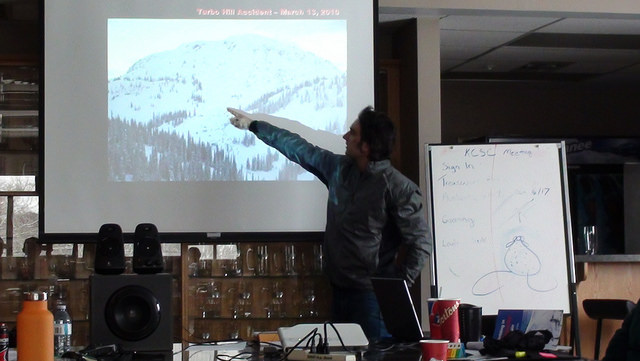
Action Plan
- Ignorance is not an excuse. Those of you out there riding unprepared, fix it. Take your AST 1 if you ride in the mountains and practise effective group management and terrain assessment. Fix it. Most I see who ignore basic safety practice have been around the block quite a few times—over 40 and bullet proof. They’ve been riding their whole lives without incident—what more do they need to know as apparently they know it all. Here’s a news flash. Machines have come a long way since the days of the Elans and Citations. Snow science and technology has advanced. Check your ego at the door and get your education, safety equipment and know how to use it.
- I really do not care—there, I said it—I don’t care if you’ve booked off a week to ride in Valemount, Revy or Sicamous. Ride to conditions, and ride to survive. Yes, you may not be hitting the steep and deep, but you will be alive. While you may consider this a waste of vacation time and money, take it from me, losing a loved one in an avalanche sends a ripple effect of pain and sadness through many. I don’t care what destination, loop or never-before-explored area you have a yearning to hit. If avalanche conditions and signs of snow pack instability are telling you to tap’er cool, do not push it. Make wise choices, ride to conditions and encourage others to do the same. Have a Plan B perhaps even a Plan C for a destination, and learn to appreciate the fun that can be had in simple terrain when avalanche conditions are considerable and high. If you can’t have fun riding simple terrain, well then, stay at home. We as a user group do not want you to die, nor should anyone be subjected to such a preventable pain.
- Be courteous and respectful towards everyone when you are out riding. If you have an aftermarket exhaust, don’t crack your throttle near residential homes. Such noise really is disrespectful, especially for those who are not snowmobilers. If you see other backcountry enthusiasts such as skiers and snowshoers out on the trail, please treat them with respect and perhaps even reach out in conversation. This will go a long way for public relations in the long run. You may be snubbed, or given the stink eye, but rest assured you will leave a lasting positive impression.
- Use your big boy/girl voice. If you are not comfortable, learn to speak up. I am sure some of the know-it-alls who’ve been around the block have ample reasons to hit a convex-wind loaded slope during high avalanche ratings, but it is up to YOU to speak up. Your life matters.You matter. When you know better, always do better. If you see stupidity out there, speak up and call a spade a spade. While you may be the “fun police” or the “killjoy” of the group, hold your head high and speak up for what you know could be an unsafe choice. You will make a difference, and you will be heard. Riding groups can get very small as you weed out those who are not on the same page as you safety wise. That’s OK. Tell them exactly why you do not wish to ride with them. Your loved ones, their loved ones and all snowmobilers will thank you for this.
- Ego-driven social media posts disregarding safety, and presenting as the most gnarly, daring, sexy, rider may gain hundreds of likes on social media. Congratulations.Your picture set a record for the most likes on Facebook, but what have you done for the sport lately? How much of your time is spent advocating for safety and stewardship? Do you support your local club? Do you support Avalanche Canada? Please consider all the eyes upon you, especially while posting on social media.
- Be seen. Be heard, and be an example of who we are to those outside of our snowmobile circle. Utilize media coverage as much as possible to showcase your efforts via safety and stewardship. Give media a chance to report success in snowmobiling rather than simply tragedy. When trolls surface on the Internet, do not engage. Some people simply live to trash talk. Think bigger, and better. Many times I have smacked the unfriend/delete/block options on social media, simply because to sink down to that level of stupidity is pointless. Do you think I’m going to change the stereotypical eco junkie’s mind when I try to implement reason into the wolf cull? No probably not, but becoming more of a voice and presenting more facts to the general population is a start.
- Think before you speak is very important especially after tragedy. It is a well-known fact that many words can be twisted and turned to make snowmobilers seem less than respectable and responsible when media is concerned. Many clubs have a designated spokesperson to help deal with media releases after tragedy or controversy. Sometimes saying nothing at all helps the sport rather than sending a negative message to the masses when words are taken out of context.
